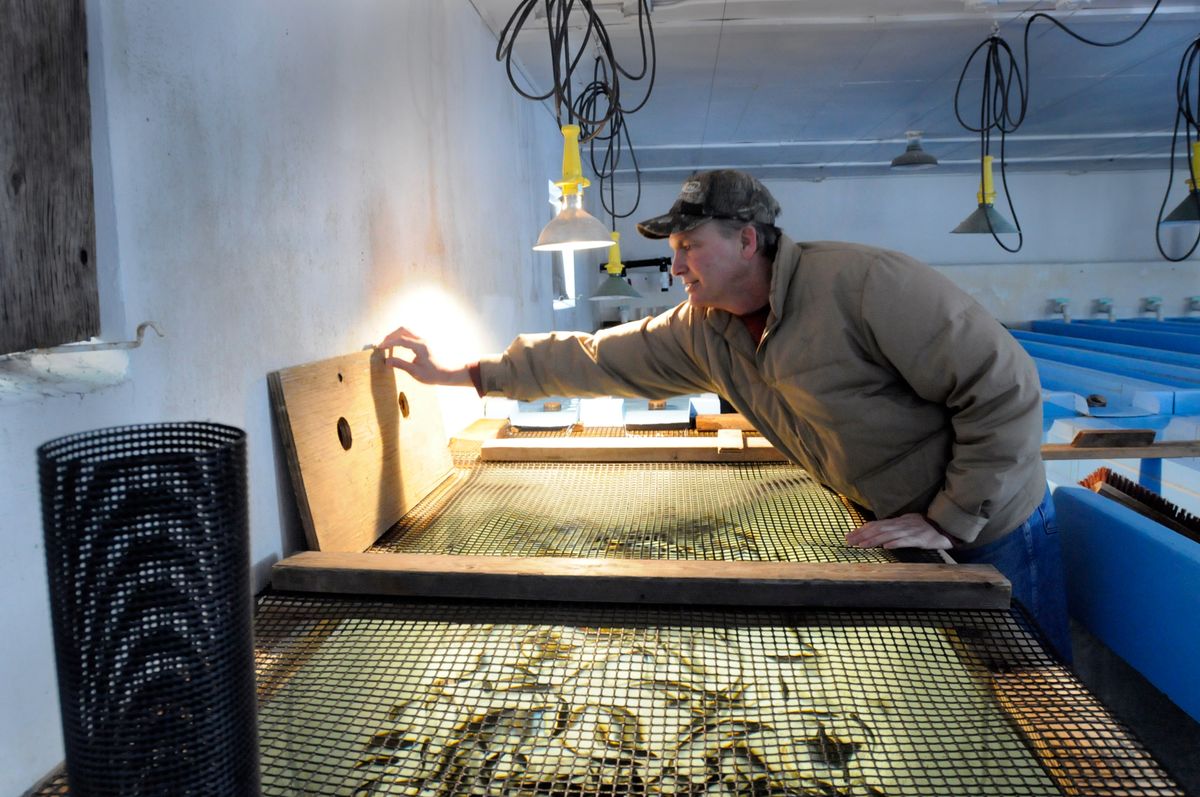Conservation On the line

A Colville hatchery that raises sport fish for more than 60 regional lakes is slated for closure as part of $30 million in anticipated budget cuts at the Washington Department of Fish and Wildlife.
The hatchery is one of seven statewide on the closure list, said John Andrews, Fish and Wildlife’s regional manager in Spokane, who expects hatchery operations to cease by June 30.
“We’ll still do the stocking this year,” he said. But in the future, anglers will catch fewer fish in some of the region’s most popular lakes, he predicted.
The Colville Fish Hatchery raises about 60,000 rainbow trout for Lake Roosevelt each year, and produces another 550,000 trout and kokanee, a landlocked salmon, for stocking at Deep, Cedar, Yokum, Big Meadow and other lakes.
Gov. Chris Gregoire asked all state agencies to prepare smaller budgets for the upcoming, two-year budget cycle. The $30 million figure isn’t final, because the Legislature is still working on its own budget plan. But Andrews said the proposed cutbacks are an indication of what fish and wildlife programs stand to lose during the economic downturn.
Fish and Wildlife plans to cut 175 of the agency’s 1,525 staff positions, including about 50 biologists. Affected employees received notices last week. Among the losses was a Spokane staff position for advanced deer and elk research.
“These are dramatic cuts for our agency, the most difficult we’ve seen,” Andrews said.
Some groups think the cuts are too severe. Among the outdoor recreation crowd, there’s interest in raising the cost of fishing and hunting licenses to stave off some of the worst cutbacks.
“There’s a mixed bag of ideas on the table right now,” said lobbyist Ed Owens, who represents hunting, fish and wildlife conservation groups.
A two-year surcharge on all hunting licenses is one possibility. Owens said the surcharge and revenue from other fee hikes could raise about $10 million during the two-year budget cycle.
Legislative budget writers, meanwhile, are considering raising department fees by 5 percent to 15 percent, said George Orr, an Eastern Washington member of the state’s Fish and Wildlife Commission. The Department of Fish and Wildlife hasn’t had a fee increase since 1999, Orr noted. However, agency officials aren’t advocating fee hikes. The governor has called for no new fee increases, and the department respects that, Andrews said.
With the proposed cuts, the agency will know less about the wildlife it manages – from coyotes and crayfish to endangered caribou and grizzly bears, he added.
Fewer biologists will be available to conduct studies and collect data on topics such as sturgeon spawning, cutthroat trout habitat or trends in cougar populations.
Sportsmen and -women will eventually see an impact. “Our ability to provide sustainable fishing and hunting opportunities will be eroded,” Andrews said.
Wildlife conservation is the agency’s core mission.
With less data, Andrews said the state will manage its wildlife populations more conservatively, and it will have less data to share with other agencies. To protect habitat, the agency consults with other governments on shoreline management, critical areas ordinances, road building and other topics.
“It’s critical for the state of Washington to have sound science for decision-making,” Orr said.
“The minutiae of managing wildlife is labor-intensive and expensive,” he added. “We’ve got researchers with Ph.D.s and master’s degrees in their fields. Those folks are entitled to a living wage.”